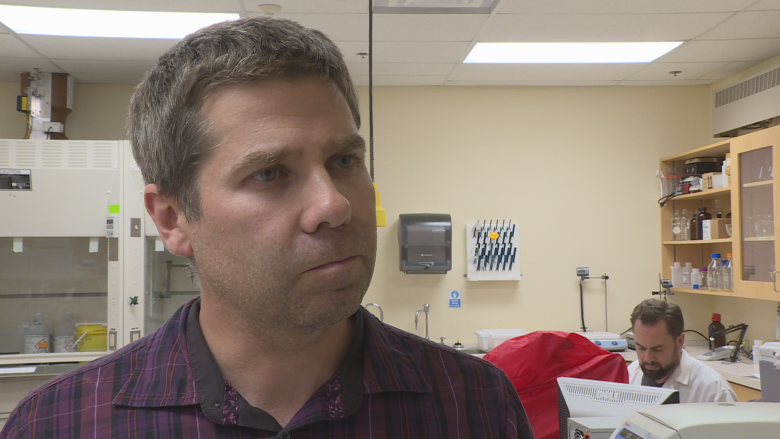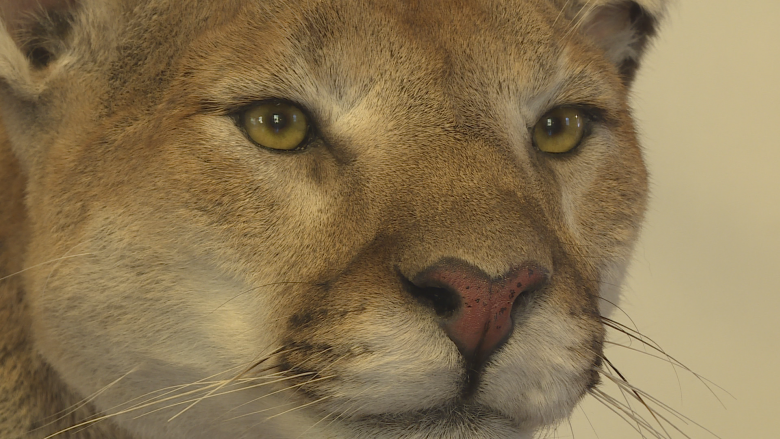Possible cougar DNA samples collected since 2003 to finally be tested
A backlog at a University of Montreal labs means the possible evidence of cougars in New Brunswick has been locked away in a storage room for more than a decade.
Samples of possible cougar hair and scat collected in New Brunswick since 2003 still haven't been tested by a genomics lab in Montreal.
That leaves the possibility that there is further proof of cougars in the province.
"In past years there have been personnel changes there, there have some delays, we actually have a backlog of five or six samples with them that have yet to be determined," said Donald McAlpine, the research curator head of zoology at the New Brunswick Museum.
"The probability is that these are not cougar, but we won't know for sure until we do the genetic work."
That backlog of samples will be returned to the province for examination at a new genomics lab at the University of New Brunswick in Saint John.
"It's terrific that we can do this now," said McAlpine.
He said the museum will have those samples back in a couple of weeks and they also have a new sample from Sussex following a vehicle collision with a possible cougar.
"So in a month or so we'll be able to have those samples tested and find out whether or not those are in fact cougar," said McAlpine.
A cougar mount at the New Brunswick Museum dating back to the 1930s that was supposedly shot in Quebec could also undergo DNA testing to explore its genetic origins.
"It will be interesting to see where that one came from," said McAlpine.
The question of cougars in New Brunswick has always been the source of controversy with many reported sightings, but little evidence to back them up.
Several households near Tracy have reported hearing and seeing a large cougar on their properties as recently as Oct 17.
"If they get a picture they'll be the first ones to ever do so in New Brunswick history," said McAlpine.
New lab, new possibilities
"About two weeks and we'll be able to tell definitively if they came from a cougar," said Scott Pavey, a Canada research chair in aquatic molecular ecology and ecological genomics.
"One of the neat applications that a geonomics lab can do is identify species, any species, using DNA."
The lab located in the Canadian Rivers Institute building on campus has been open for around four months.
Pavey said the new lab will benefit the province in ways beyond solving the question of cougars.
"It's a lot easier to work with local problems and local people like those the New Brunswick Museum or the Department of Fisheries and Oceans," said Pavey.
"I have a vested interest in working with local people and local issues that you wouldn't necessarily get from a lab in Montreal or Toronto."
Not the Wild Variety
Despite the possibility of confirmed cougars in the province, chances are they have not come to New Brunswick on their own accord.
"We've gotten hundreds, perhaps thousands of reports of sightings," said McAlpine.
"But with the exception of two, there's been no way to verify those."
There have been a pair of confirmed cases of cougar DNA in the province's history.
In 2003, "scratch posts" set up in Fundy National Park, stations designed to lure cougars, produced two genetic samples that tested positive for cougar DNA.
One of those samples was from a population found in South America.





